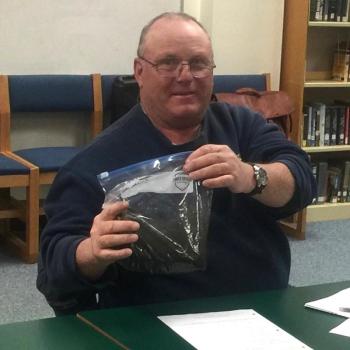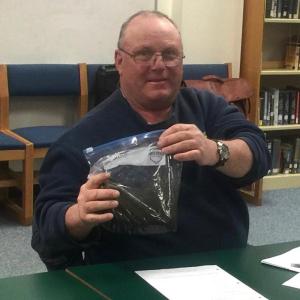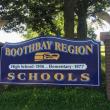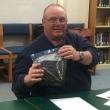School board mulls cell phone policy
Community District School board members addressed student cell phone use during their Sept. 12 meeting. Members and the public expressed concern about the impacts of mobile devices on children and questioned if the school’s policy is adequate to address them.
Board member Stephanie Hawke said she heard reports from teachers about student cell phone use, and she is concerned about the impact on social development as well as potential cheating and damage to students’ health. She said she would like to see phones prohibited during school hours.
“There’s a lot of kids on their cell phones, and I think its damaging ...,” Hawke said. “I just really feel these phones are hurting these kids.”
Boothbay Region High School (BRHS) Principal Tricia Campbell, shared some of Hawke’s concerns, but she said the policy was adequate. Campbell talked about a recent survey of staff and students that showed 100% of students who responded believed the policy did not need to be changed. However, she said students did express the policy should be applied more consistently.
The current policy is to prohibit cell phone use in the elementary-middle school during the school day. The BRHS policy allows more flexibility, stating devices “can serve a purpose to enhance a student's learning and educational experience.” High school students can use cell phones during unstructured, nonacademic times.
According to Campbell, even though phones are not supposed to be used for social activities during educational time, teachers can allow students to use them for instruction. She said, in these cases, it is the teacher’s responsibility to decide if the use is appropriate, taking into account equitable access to technology, and balancing its positive and negative impact in the classroom. The schools do provide some devices, but a smartphone may be able to perform tasks a computer cannot, including taking video and photos, scanning codes and running some apps.
Lacey Phelps, a middle school teacher and BRHS parent, said the schools “have amazing students that are products of their environment.”
She and other participants said cellphones are a significant part of a student’s world. Some addressed the difficulty of understanding the issue due to the fact most board members are not digital natives, a person brought up in the digital age.
Phelps said most students use cell phones well, but some are addicted, which is not OK. However, she argued that a solution lies in mutual respect. According to her, when adults just tell kids ‘no,’ it shuts the door to communication and drives students to be on the phone more. Campbell said phones can provide emotional security and a sense of connection, which was especially true around the pandemic; Their absence could be anxiety inducing for some students. She said one approach has been to keep the phones visible in clear pouches in the classroom, but away from reach.
“Rather than taking things from them, we need to educate them on what's best and socially responsible,” she said. “We’re not going to fix things by taking things away from them, we have to teach them how to use it.”
Campbell said teaching students the appropriate time and place to manage devices is more effective than a ban, and the policy is working. However, the policy is only part of a solution, according to administrators. The group discussed the district’s social emotional learning curriculum, which helps students learn to communicate and interact with one another. Boothbay Region Elementary School Principal Shawna Kerr also brought up the role of parents, who she said are the ones providing phones. She said most cell phone use does not happen at school and parents should be involved in guiding their use.
“This is also about parents, it's not just about the school,” she said. “We’re not breaking the addiction; parents need to know how to set limits with kids.”
By the end of the meeting, no changes were made to the policy, but the board agreed to revisit the issue in three months.
In other business, the dry sprinkler system at BRES has failed testing, according to Alternative Organizational Structure (AOS) 98 Superintendent Robert Kahler. The system is designed to protect the space between the roof and ceiling. According to Kahler, the wet sprinkler system is fully functional.
“It’s perfectly safe for kids to be here,” Kahler said, adding that he has been in contact with the fire marshal.
The school became aware of the issue in May when workers found a significant amount of metal particles in an eight-foot section of black iron pipe during repairs on the compressor system. The material could cause issues if the system were to be activated, and it suggests parts of the 46-year-old system need repair, according to Kahler and Director of Facilities Dave Benner. Kahler said initial quotes suggest replacing the system will be more cost effective than repairing it and cost around $250,000-$300,000.





























